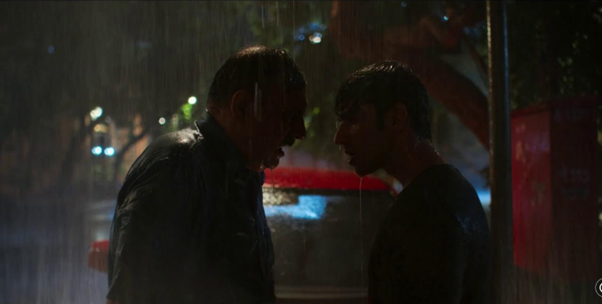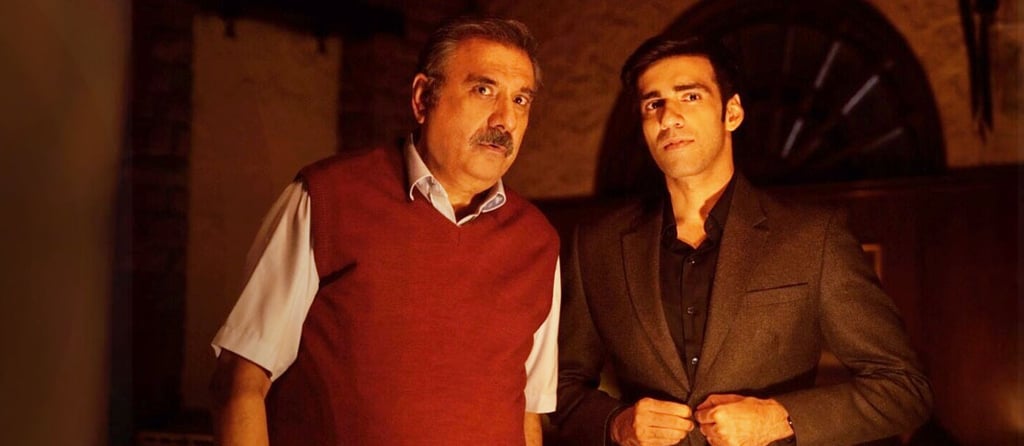The Mehta Boys
The Mehta Boys delves into the strange, bewildering, yet beautiful bond between a father and son, capturing the heart of this complex relationship.
MOVIE REVIEW
Shreyash Manral
5/30/20254 min read


Father and son.
That is a life-long discussion in itself. The relationship is a big question mark, isn’t it? For the longest duration, for which a son wants to have the feeling of love and affection, and most importantly validation, he is bestowed the lantern of obedience, etiquettes and discipline, all without an ounce of that nurturing feeling he needs. Is that a norm? Is that the story of every man in the making?
A recent watch, The Mehta Boys, starring Boman Irani in the role of a Sindhi father, Shiv Mehta, and Avinash Tiwary, as his son, Amay Mehta, brought all these questions flooding back.
The story starts with an introduction to Amay’s character — an ambitious architect, struggling to find the rhythm for his recent assignment. Amidst his professional battle of finding a solution true to his standards, and getting some much needed support from his girlfriend, played by Shreya Chaudhary, he gets the gut-wrenching news of his mother’s passing. She isn’t a character on screen, but man, is she important. You don’t see her, but you feel her — because the emptiness she leaves behind tells you everything you need to know about this fractured family.
Amay travels to his home, leaving behind the bustling, hustling ‘Bombay’, off to a quiet little place in Pune. His sister, Anu, who’s flown in from the US, leaps into his arms, crying for their loss. And then, the moment he walks into the house — there’s Shiv, his father. He doesn’t embrace him. Doesn’t break down. Just introduces Amay to the people gathered for condolences. That’s it. That is one cold scene. No warm hug, no “how have you been,” just a distant nod. You’d wonder what had gone so wrong?
The rituals are done, and Amay and his sister stay back with their father for a few days. But soon enough, Amay has to get back to Mumbai. Head back to work. Shiv clearly isn’t happy about it — but being the man he is, he doesn’t say it. Just swallows it and moves on. Anu, on the other hand, manages to convince her father to move in with her in the US. Shiv is reluctant, not ready to part with the last living memory of his wife. But when it’s the daughter asking, crying, pleading — he gives in. The man chose a live feeling over a cherished memory. Would it have been the case if his son were in place of his daughter? Tough one. Confusing relationship, there’s no straight answer to that.
Amay’s already back in Mumbai when he hears that his father is flying off to the US. He shows up at the airport, only to find out that Shiv’s ticket didn’t get confirmed. And then comes that little sibling squabble — Anu insisting he stay at Amay’s place until the next flight, Shiv refusing like it’s beneath him. He’d rather stay at a hotel. Pride? Distance? Bit of both. But Amay convinces him to stay, and what follows is... interesting.
Their dynamic is awkward, formal, like two polite strangers sharing a house. There’s a moment where they’re both trying to give up the bed for the other — a small gesture, but you can see the effort. And then, life throws in a little twist — a power cut. It’s pitch dark. Shiv makes noodles. They share a meal, sit together, watch a comedy movie, and for a brief moment, they laugh. Together. Like two humans. Not father and son, not strangers — just two people enjoying something simple. That was... warm. Quietly warm.


But things don’t just magically change; One night, they’re sharing a drink and having a casual banter, when suddenly the warm atmosphere gets heated up. It gets personal. They both end up feeling like the other attacked their profession — Amay thinks Shiv doesn’t respect his line of work, Shiv feels Amay never valued the life he built. And there it was — the root of the rift. Shiv never really accepted Amay’s choices. And Amay? He’s carried that wound, quietly. This wasn’t just a one-time argument — this was years of bottled-up judgments, misunderstandings, and unspoken hurt bubbling over. All masked in the name of concern, tradition, ego.
Then comes Shiv’s birthday. He wants to meet Zara — Amay’s girlfriend. Wants to treat them to dinner. Seems like a nice gesture, right? But Amay second-guesses the choice of restaurant — thinks it’s too fancy for his father to afford. Tries to intervene. And man, that hurts. It comes from concern, sure, but what it really does is make Shiv feel small. Incompetent. Especially in front of the girl he’s trying to bond with. Amay had grown up watching his father be conservative with money — so naturally he assumes the man can’t or won’t spend on something like this. But Shiv wanted this. Shouldn’t that have been enough?
Clear case of miscommunication, if you ask me. The relation between a father and a son. Cliché!
Things started to feel a little warmer after that. But warmth doesn’t mean the ice has melted, right? It was more like both of them walking on thin ice, cautious, polite, but not quite sure what lies beneath.
By the end, they didn’t become best friends. They didn’t have some big, dramatic reunion or an emotional monologue that fixed everything. But something shifted. A small acceptance. They didn’t fully understand each other, but maybe they stopped trying to fix each other. And maybe that’s enough.
That’s what makes The Mehta Boys stick with you. It doesn’t give you a happy ending tied in a bow. It gives you a real one. One where two people, tied by blood but pulled apart by years, try—just try—to meet halfway. And sometimes, that little effort, that one step toward each other, is the most real and raw kind of love there is.
